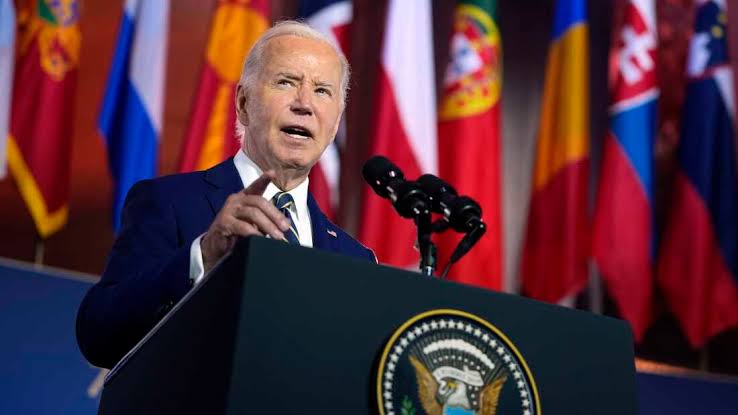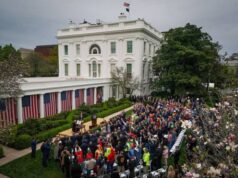Biden’s NATO promise main cause for Russia-Ukraine conflict

Though Zelensky is losing soldiers and even territory, the Conflict is showing no signs of an early end. Russia is moving at its own slow pace probably conserving itself for a massive foolish last gasp action by the NATO.
Trump’s foreign policy is already having consequences for Zelenskey’s future, NATO’s cohesion, and the broader global order. Whether Trump’s approach would lead to a sustainable peace and a retreat of Western arbitrariness has become one of the key debates.
US President Donald Trump has once again blamed “ crooked “ Joe Biden, for the ongoing conflict between Russia and Zelensky, asserting that Biden’s assurances regarding Ukraine’s NATO aspirations provoked the war.
Trump, who has repeatedly claimed that the hostilities would never have erupted under his leadership, reiterated this stance during recent remarks, emphasizing that Moscow can never permit Ukraine to join NATO given its geopolitical realities.
Trump argued that Russia’s historical stance on Ukraine’s NATO membership made it clear that allowing Kyiv into the alliance was a red line for Moscow.
Biden’s public endorsement of Ukraine’s NATO bid was the catalyst for the warIt seems Western Europe and Biden Administration, all had simply forgotten the Cuban Missile Crisis ….the main reason.
Even defense secretary, Pete Hegseth, speaking ahead of the Ukraine Defence Contact Group meeting, ruled out NATO membership for Kyiv as part of any potential peace deal.
He also dismissed any notion of deploying US troops to Ukraine, a move that some hawkish policymakers have suggested as a means to counter Russian advances. He stood by his assessment that Ukraine’s NATO membership was unlikely, calling it a recognition of “hard-power realities on the ground.”
The debate over Ukraine’s NATO membership has been one of the most contentious issues in the conflict. Since the collapse of the Soviet Union, NATO has expanded eastward, incorporating former Warsaw Pact states and ex-Soviet republics.
Moscow has long viewed this expansion as a direct threat to its national security.
Putin has repeatedly pointed to NATO’s promises—made in the early 1990s-not to expand eastward as justification for his opposition to Ukraine’s potential accession.
While Western officials dispute that any such guarantees were formally made, the perception in Moscow remains that NATO’s continued enlargement is a betrayal of past assurances.
Biden’s administration has maintained strong rhetorical and material support for zelensky, supplying weapons and financial aid while pushing for further integration between Kyiv and Western institutions.
However, some political analysts argue that the ambiguous stance on NATO membership-dangling the prospect without a definitive timeline-has fuelled Russian anxieties rather than providing Ukraine with concrete security assurances.
Trump’s criticism of Biden’s handling of the crisis aligns with his broader foreign policy philosophy. Throughout his presidency, Trump often voiced skepticism about NATO, questioning its utility and burden-sharing dynamics.
Biden’s administration has repeatedly defended its support for Ukraine, arguing that allowing Russia to dictate NATO’s enlargement would set a dangerous precedent.
Biden’s officials framed the conflict as a struggle between democratic values and authoritarian aggression, insisting that Ukraine’s sovereignty must be upheld.
NATO Secretary-General also echoed sentiments, emphasizing that “Ukraine will become a member of NATO in due time”, the alliance has taken steps to only deepen military cooperation with Kyiv but has stopped short of offering a direct membership pathway, wary of provoking an even more aggressive response from Moscow.




